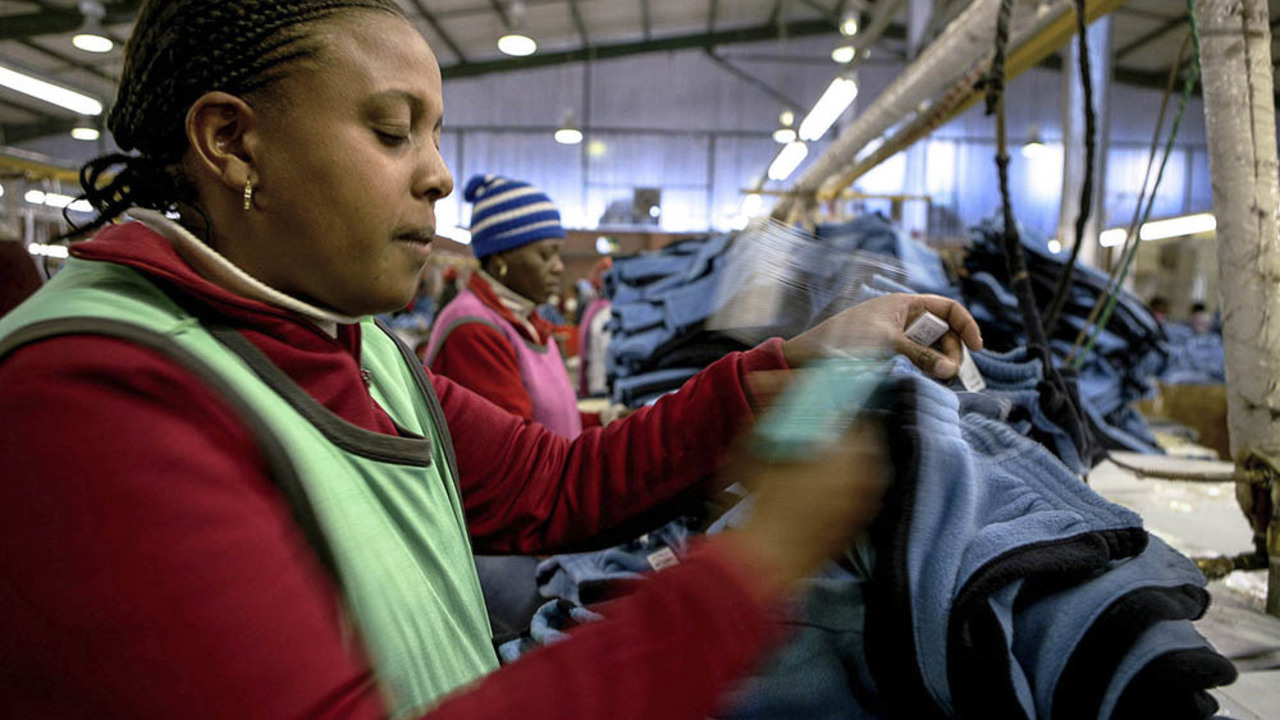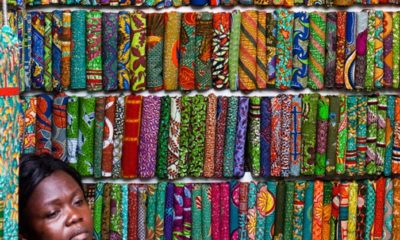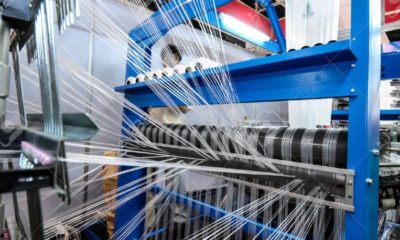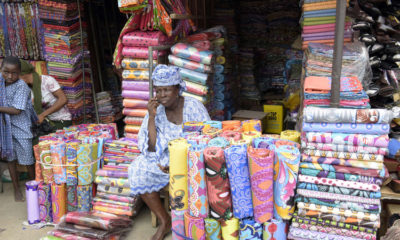- Textile Industry: NECA, Textile Union Back CBN on Forex Restriction
The Nigeria Employers’ Consultative Association and the Senior Staff Association of Textile have expressed their support for the Central Bank of Nigeria’s recent restriction of forex to textile importers.
The CBN Governor, Mr Godwin Emefiele, had on Monday said the recent measures announced by the apex bank were to revive the Cotton, Garment and Textile sector. He said the measures were well thought out to reposition the sector for job creation and economic growth.
Emefiele was replying to the position of the Lagos Chamber of Commerce and Industry cautioning government over the restriction of foreign exchange for the importation of textile materials.
The LCCI Director-General, Muda Yusuf, had said that there was a need for a strategic approach before such policy pronouncement should have been made.
He had advised the Federal Government to reconsider the Central Bank of Nigeria’s ban of forex to textile importers.
He argued that given the position of Nigeria in Africa as a leader in fashion, the range of fabrics produced by the Nigerian textile industry could not support the industry in terms of the quantity and quality.
Yusuf, who noted that his submission was not to diminish the importance of the local textile industry in any way or the significance of the nation’s industrialisation, however, added that this was to underscore the importance of a strategic approach to industrialisation.
The LCCI DG said before such policy pronouncement, the government ought to have strengthened the capacity of domestic industries, enhanced their competitiveness and reduced their import dependence as espoused in the Nigeria Industrial Revolution Plan.
But reacting to the position of the chamber, the CBN governor said the strategic approach being referred to by Yusuf had never worked.
Speaking in support of the CBN governor on Tuesday, the Director-General, NECA, Mr Timothy Olawale, and the General Secretary, Senior Staff Association of Textile, Mr Foly Owolabi, in separate interviews with our correspondent, described the forex restriction on textile imports as the right step in the right direction.
They added that the revitalisation of the Nigerian textile industry, which used to be the largest employer of labour after the civil service, would stimulate local production and create employment opportunities for Nigerians, given the rate of unemployment in the country.
Olawale said NECA had been clamouring for the strengthening of the local industries, and the CBN had hit the bull’s eye by the action, arguing that the measures would lead to the resuscitation of the moribund textile industries scattered across Lagos, Kaduna, and Kano, among others.
He, however, called on the government to take a decisive action on the nation’s epileptic electricity, and other infrastructure that would aid industrialisation and take the textile industry out of the woods.
He said, “One has to understand the CBN’s position in order to appreciate the restriction it placed on forex for textile imports. At the Nigeria Employers’ Consultative Association, we have been clamouring for the strengthening of the local manufacturing.
“We are totally in support of the CBN for the restriction of forex for textile imports. Essentially, the CBN’s measures would lead to the resuscitation of the nation’s moribund textile industry, it would make them competitive and lead to the provision of employment for Nigerians.
“As employers, we have many employers involved in the textile importation. The government is not saying it has banned importation of textiles. What the government is saying is that it will no longer offer forex to the importers of textiles. So, they will have to source their forex through others sources.
“To really boost local production, the government must take a decisive action on the issue of electricity. It must ensure that the power generated are all distributed to the consumers. It must settle the acrimony between the Gencos and Discos and the regulators.”
On his own part, Owolabi said he was excited about the fact that the CBN had also announced that it would give loans to the operators at a single digit rate, to enable them to retool and remodel their machinery.
He noted that those textile companies that were still in existence currently operated below 20 per cent capacity, but with the CBN’s intervention, he hoped to see them moved up to between 70 and 80 per cent capacity.
He said, “The restriction of forex to textile importers by the CBN will boost the local textile industry, in terms of increase in production capacity. Currently, they are operating below 20 per cent; I am hopeful that after the CBN’s intervention in providing the loans, their production capacity will move up to between 70 and 80 per cent.”
Owolabi rued the LCCI which had complained about the issue of epileptic power sector, arguing that “electricity is a work in progress.”
The Ogun State Chairman, Trade Union Congress, Olubunmi Fajobi, however, expressed his fears about the issue of power and the inability of the local textile industry to meet the local demand in terms of quality and quantity.
He said, “Let us use the local Adire as an example, some of the fabrics being used for its production are imported from Republic of Niger and Mali, among others. Can we cope with the local demand? Do we have electricity? Are the production lines running at full capacity?
“We must address all these deficits, before taking measures that will have far reaching effects on Nigerians, an industry or a sector of the economy.”

 Naira4 weeks ago
Naira4 weeks ago


 Naira4 weeks ago
Naira4 weeks ago


 Naira3 weeks ago
Naira3 weeks ago


 News4 weeks ago
News4 weeks ago
 Travel4 weeks ago
Travel4 weeks ago




 Naira4 weeks ago
Naira4 weeks ago


 Jobs3 weeks ago
Jobs3 weeks ago
 Naira3 weeks ago
Naira3 weeks ago
















